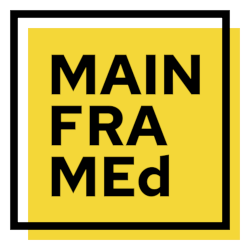z/OS TSO/ISPF Workshop
Code: TSODescription
This course teaches the use of TSO/ISPF on z/OS.
Audience
TSO/ISPF is the standard means for IT professionals to interact with z/OS. This course is therefore a vital course in the basic training of all staff working with z/OS. It is applicable to all Application Programmers, Systems Programmers, Operations and Support Personnel new to the TSO environment.
Prerequisites
Knowledge of computer concepts and disk storage is necessary.
Whilst attending our z/OS for Beginners course is not a formal prerequisite, it is recommended.
Objectives
On completion of this course delegates will be able to:
- Log-on to TSO and control the TSO session.
- Navigate the ISPF panels.
- Create, edit and view data sets and members within PDS and PDSE libraries.
- Perform general utility functions from within ISPF.
- View and manage job output using SDSF.
Topics
Module 1 – TSO/E Environment
TSO and z/OS relationship.
Initial logon process and screens.
The role of Session Management software.
Native TSO (Line Mode).
TSO with ISPF (Panel mode).
RACF Profiles.
Data set naming conventions.
Batch TSO.
Module 2 – ISPF/PDF Overview
Relationship between ISPF and TSO.
The 4 panel types described.
Primary option menu.
Program Functions Keys.
General ISP Commands.
Jumping between panels/functions.
Scrolling.
Split screen mode operation.
HELP information described (TSO and ISPF).
FIND and CHANGE commands introduced.
END versus RETURN.
RETRIEVE commands.
Keyboard customisation overview.
Module 3 – ISPF Interface (a.k.a. ISPF Option 0)
Terminal settings.
Log data set settings.
List data set settings.
Default JCL set up.
Function Key customisation.
Module 4 – ISPF View (a.k.a. ISPF Option 1)
Entry Panel described.
Member list panel described.
Data panel described.
Summary of View/Browse Commands.
FIND Command described.
Difference between Browse and View.
Module 5 – ISPF Edit (a.k.a. ISPF Option 2)
Panel descriptions.
Edit profile and commands described.
Edit Primary versus Line commands.
Using Line commands (A, B, C, D, I, M, O, and R).
Comprehensive line command overview.
Shift commands.
Comprehensive Primary command overview.
TAB Control descriptions (3 types).
BOUNDS command.
CHANGE command described.
COPY and MOVE described.
CREATE and REPLACE described.
CUT and PASTE described.
Module 6 – ISPF Utilities (a.k.a. ISPF Option 3)
Library Utility (ISPF Option 3.1).
Data Set Utility Including VSAM capability (ISPF Option 3.2).
COPY / MOVE Utility (ISPF Option 3.3).
Data Set List Utility (ISPF Option 3.4).
Output Display Utility (ISPF Option 3.8).
Compare Utility (ISPF Option 12).
Search Utility (ISPF Option 14).
Module 7 – TSO/E Commands (a.k.a. ISPF Option 6)
Command panel described.
TSO/E Command overview.
Scripting overview (CLIST and REXX).
Allocating own ISPF Libraries.
Emulator interaction.
PC file transfer.
Keyboard mapping.
Module 8 - SDSF
Security Controls (role of RACF and ISFPARM).
SDSF Primary Menu.
Display active tasks.
Displaying input queues.
Displaying held output currents.
Displaying the current status.
Display the initiators.
Displaying the SYSLOG.
PREFIX and OWNER commands.
Displaying a specific job’s output.
Submitting a job from the output queue.
Capturing output to a data set.
Entering z/OS and JES commands.
Appendix A – Fun with CLISTS and REXX (Time Permitting)
Implicit versus Explicit invocation.
Execution via LOGON.
Execution from READY prompt.
Execution from any ISPF Panel.
Execution from Option 6 Panel.
Batch execution.
Price (ex. VAT)
Duration
Delivery methods
- Classroom
- On-site (at your location)
- Virtual (instructor online)
